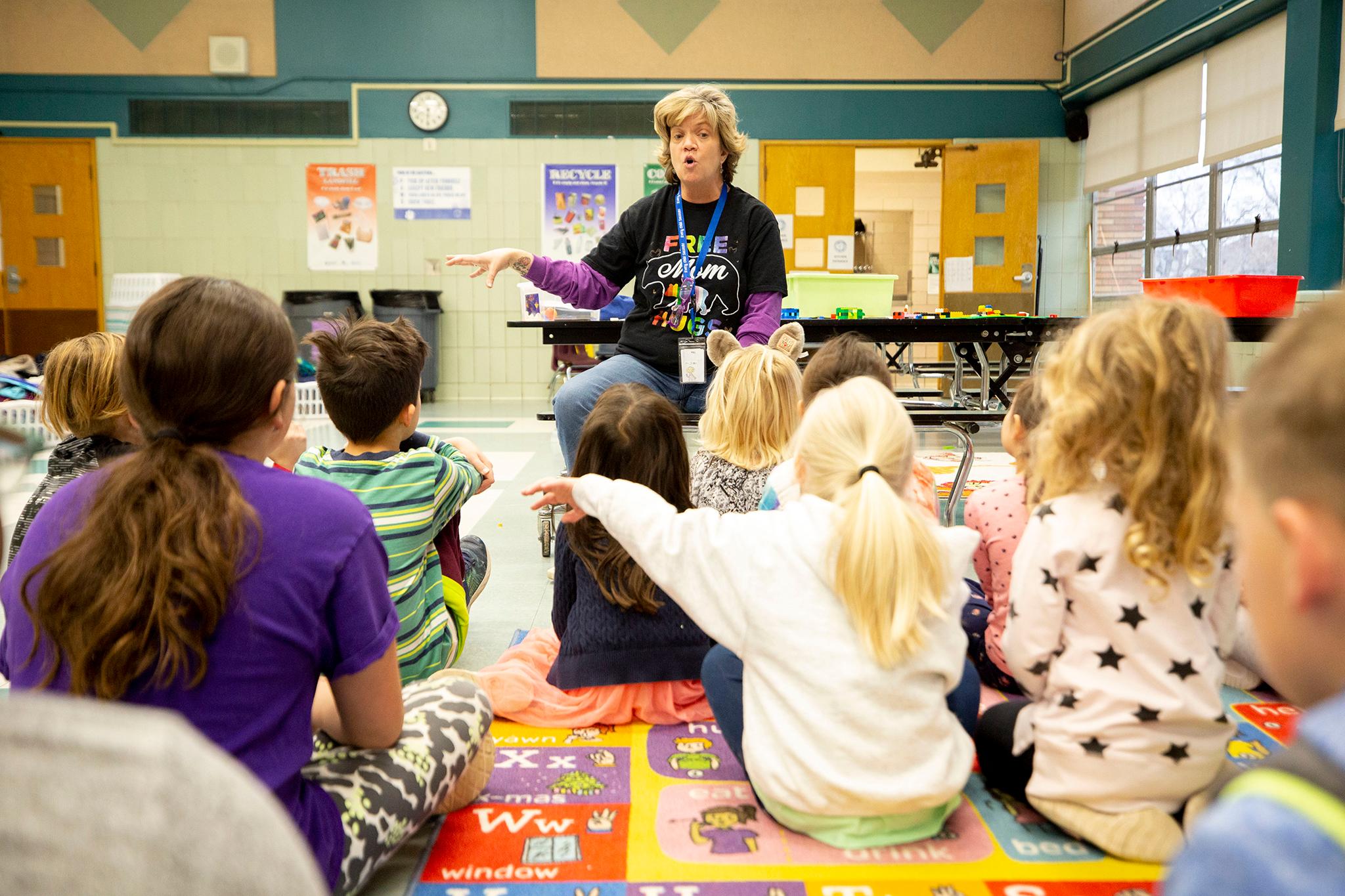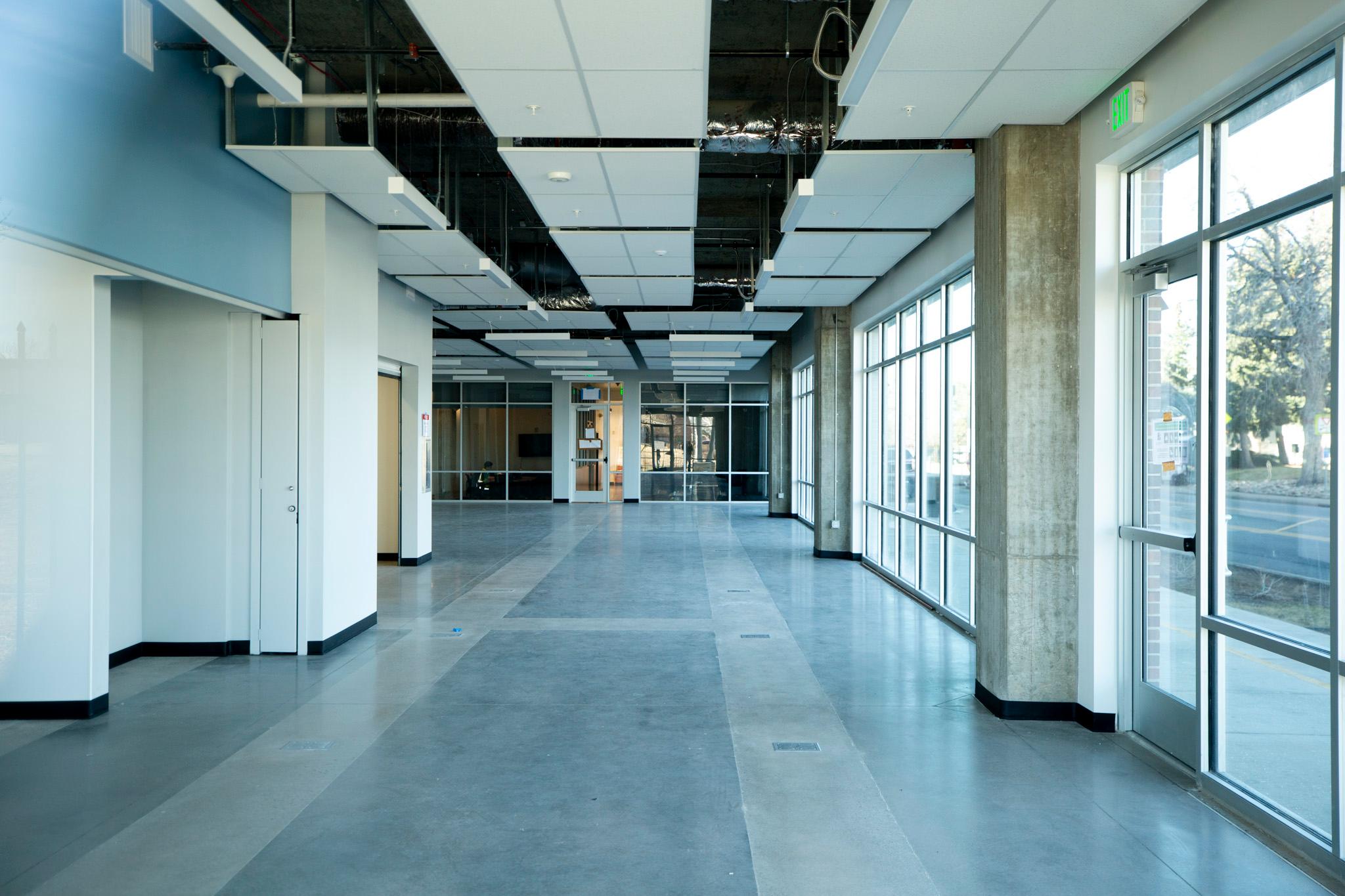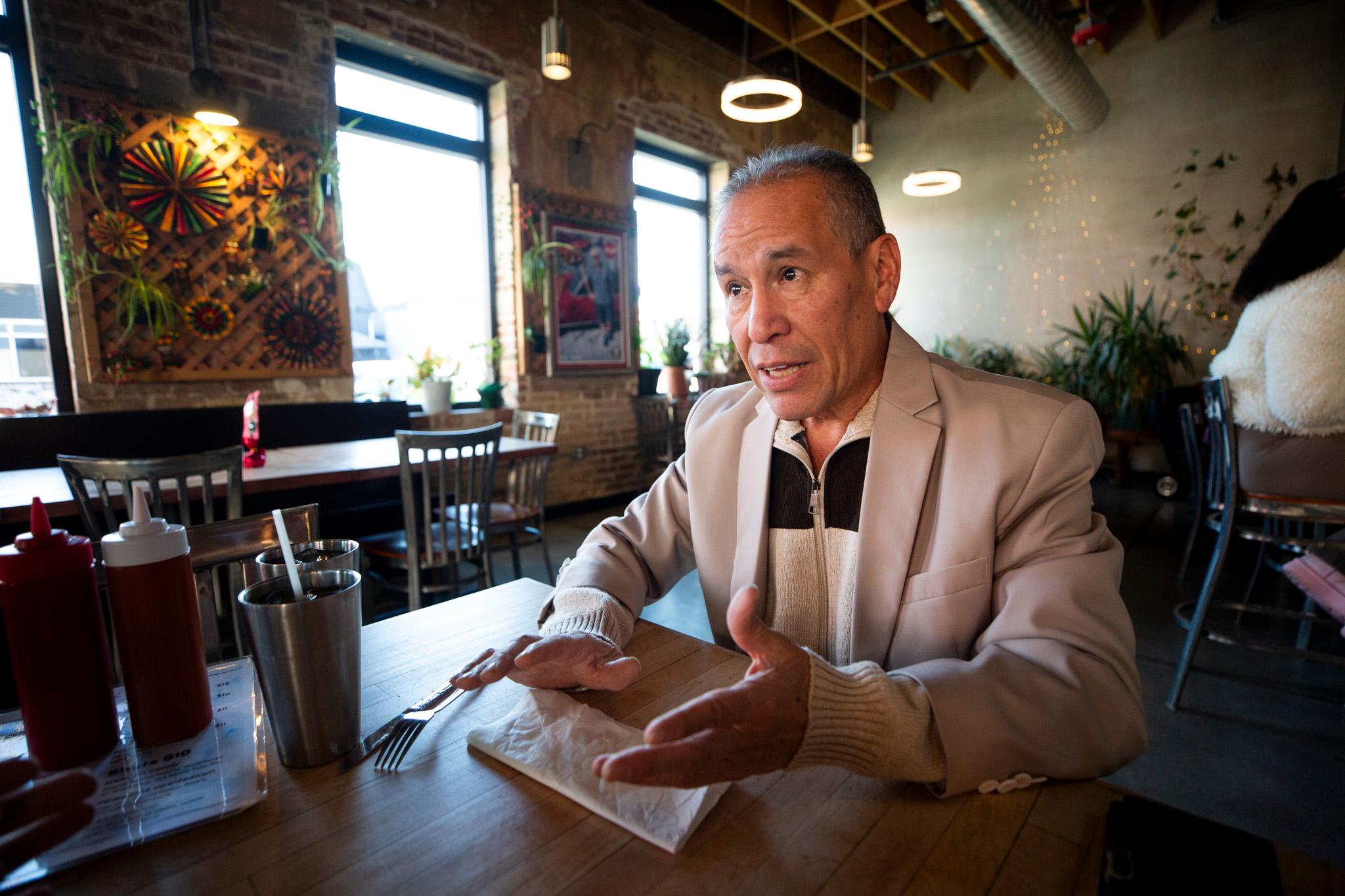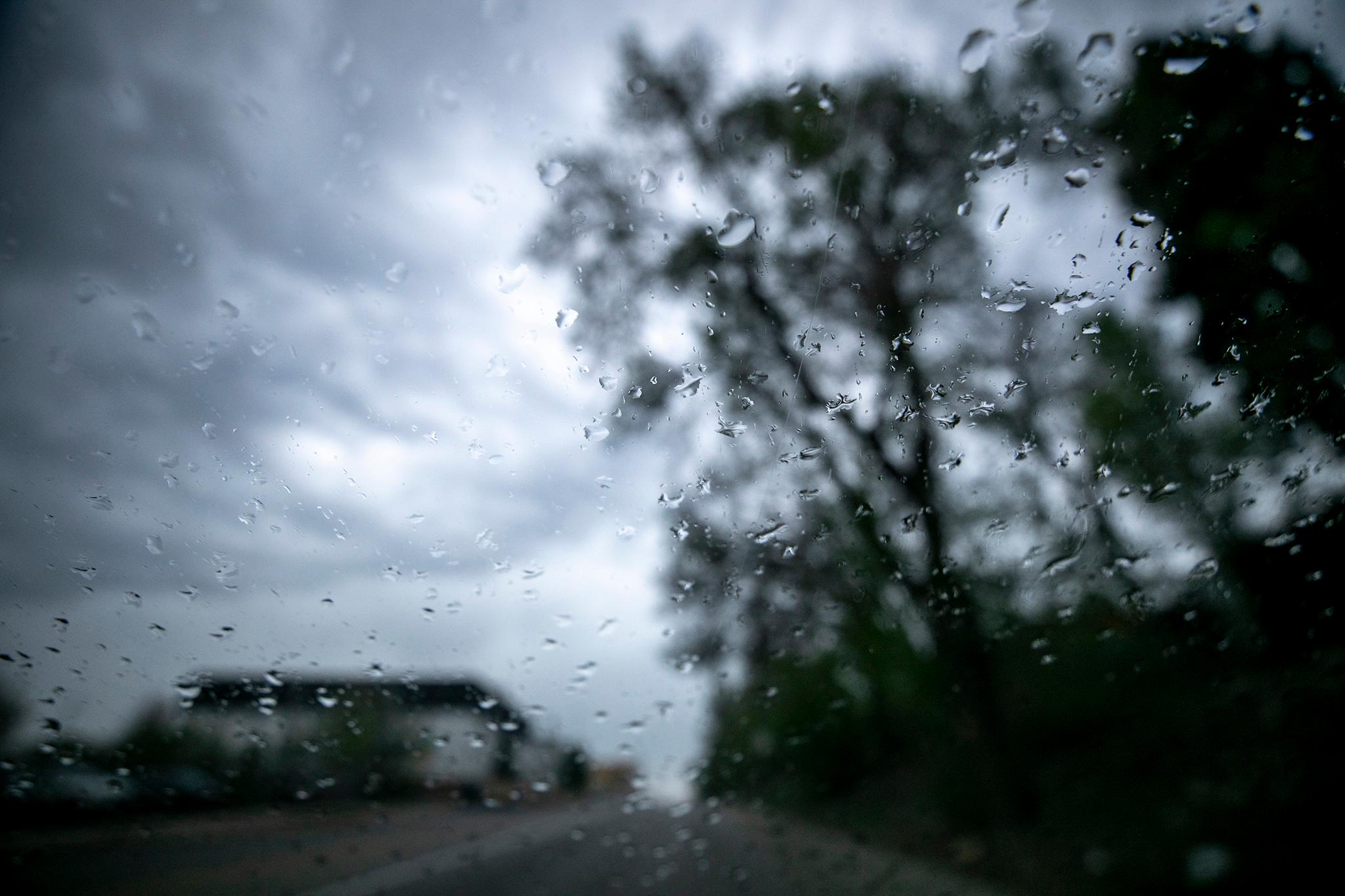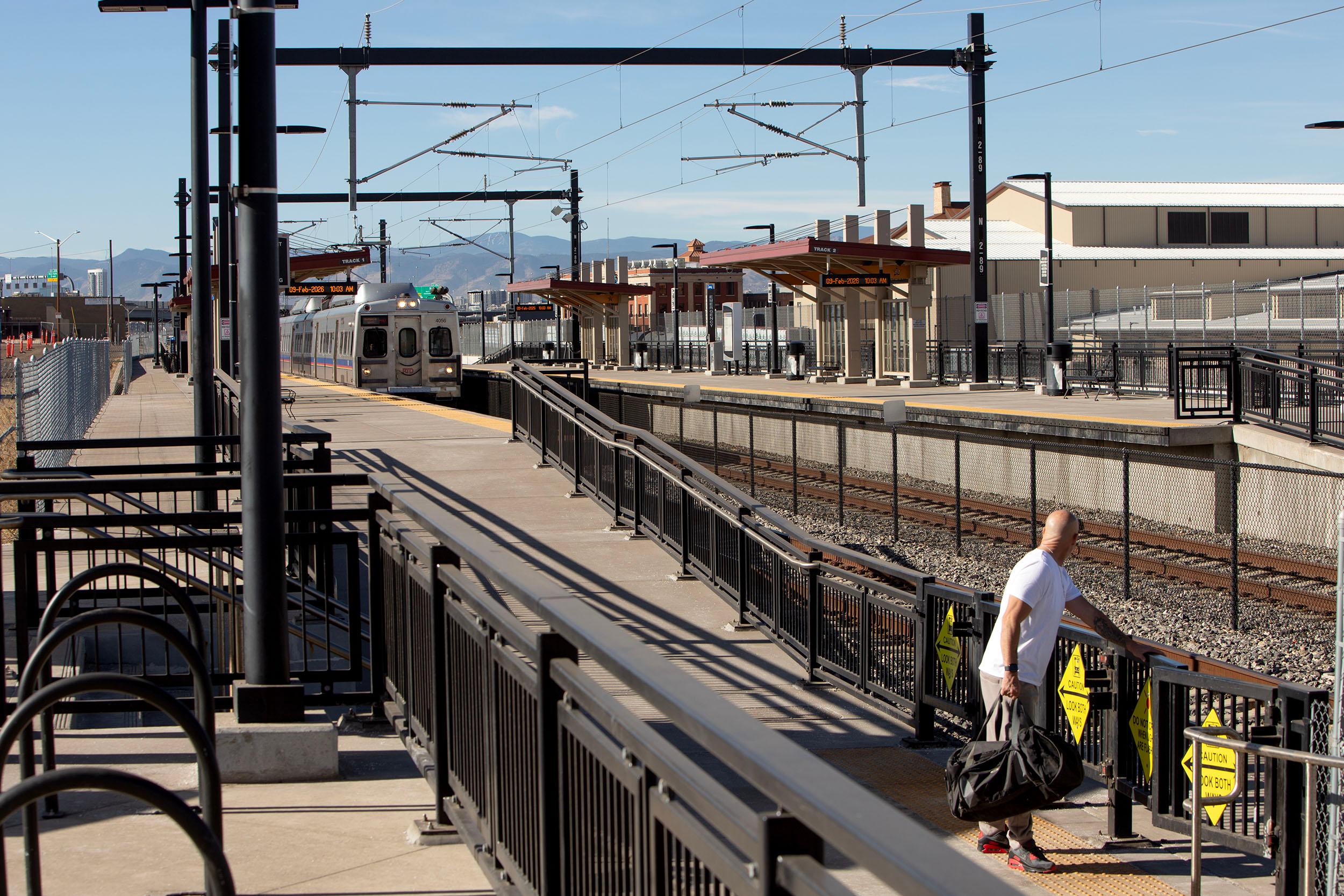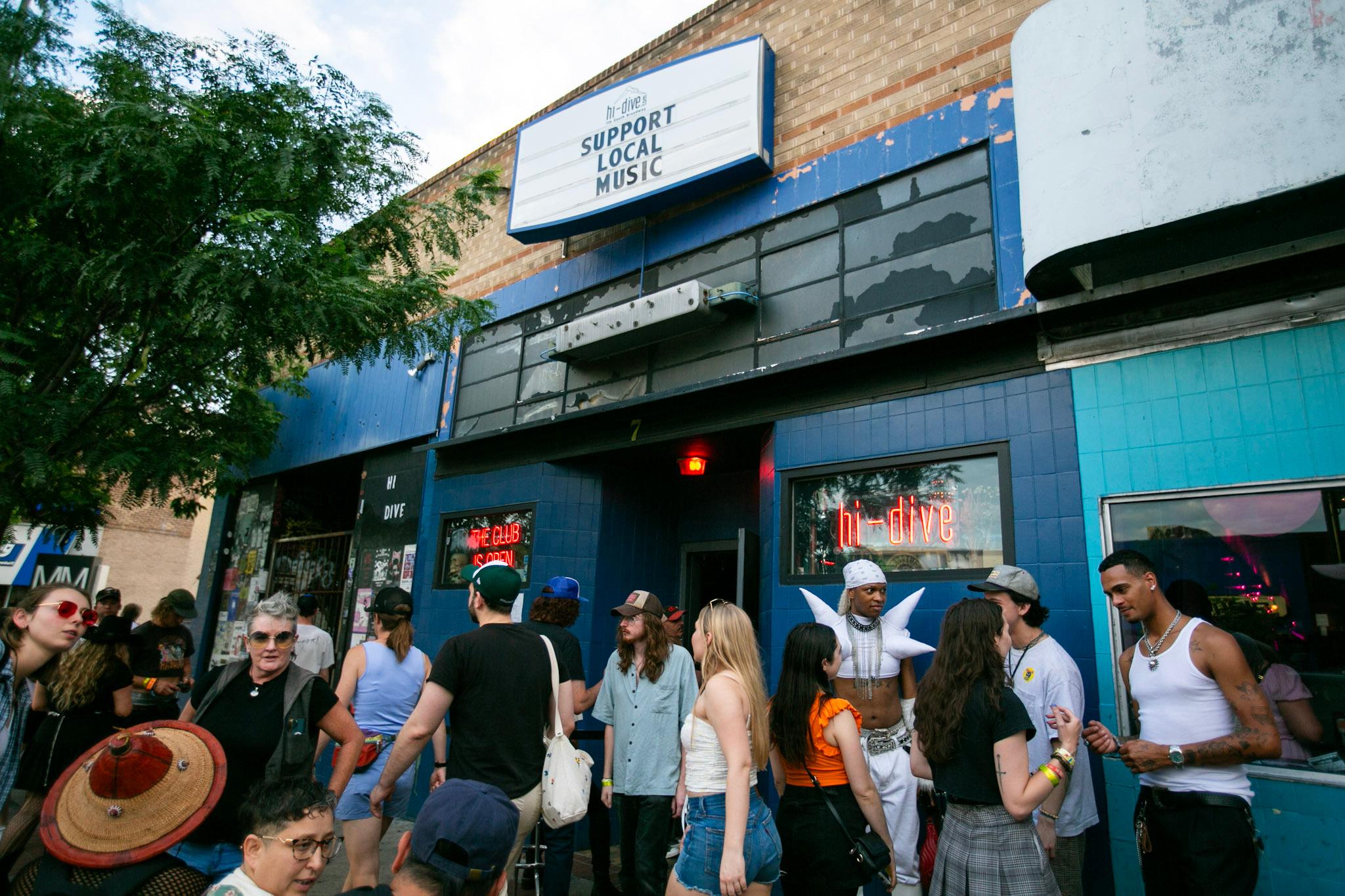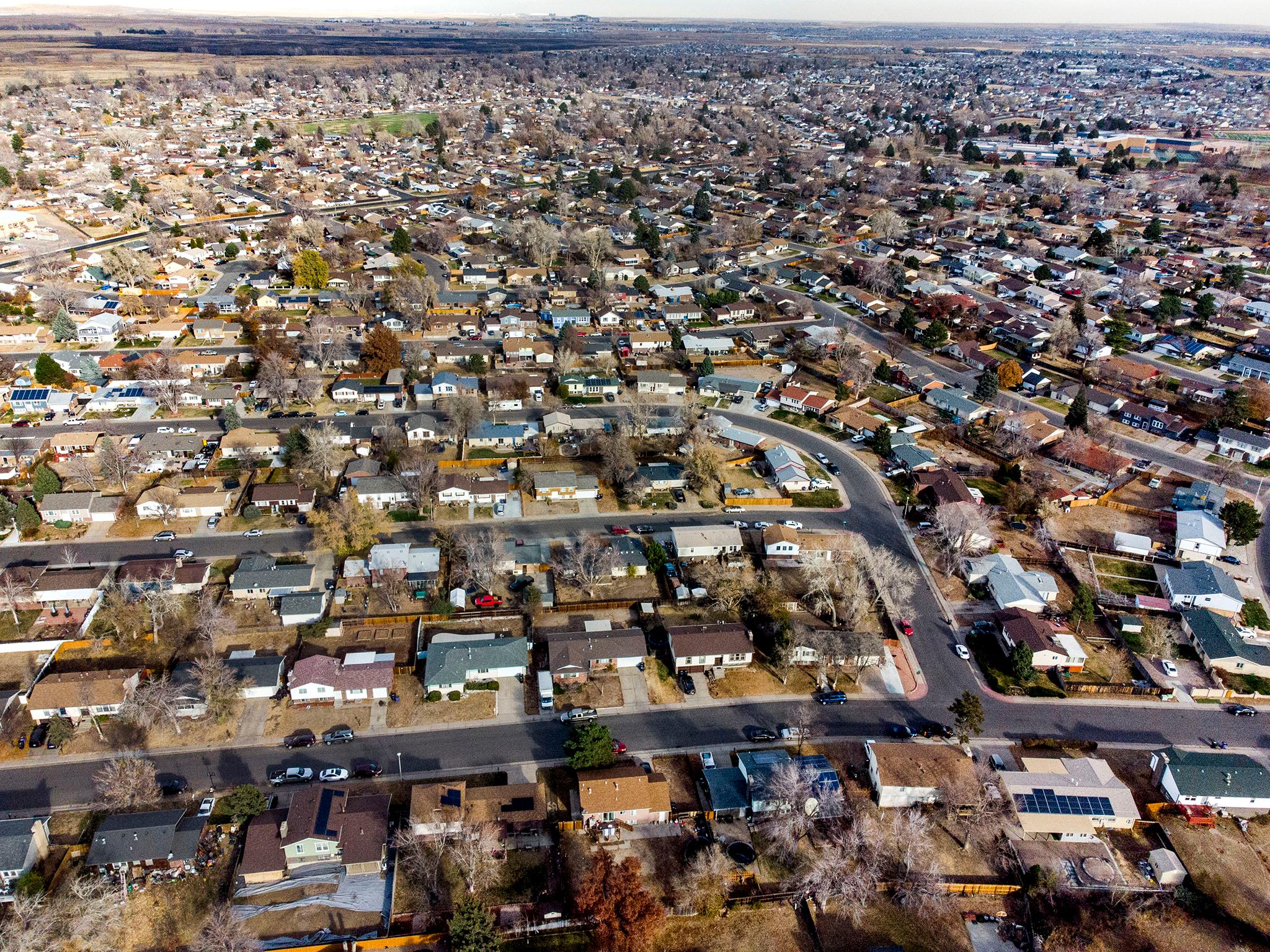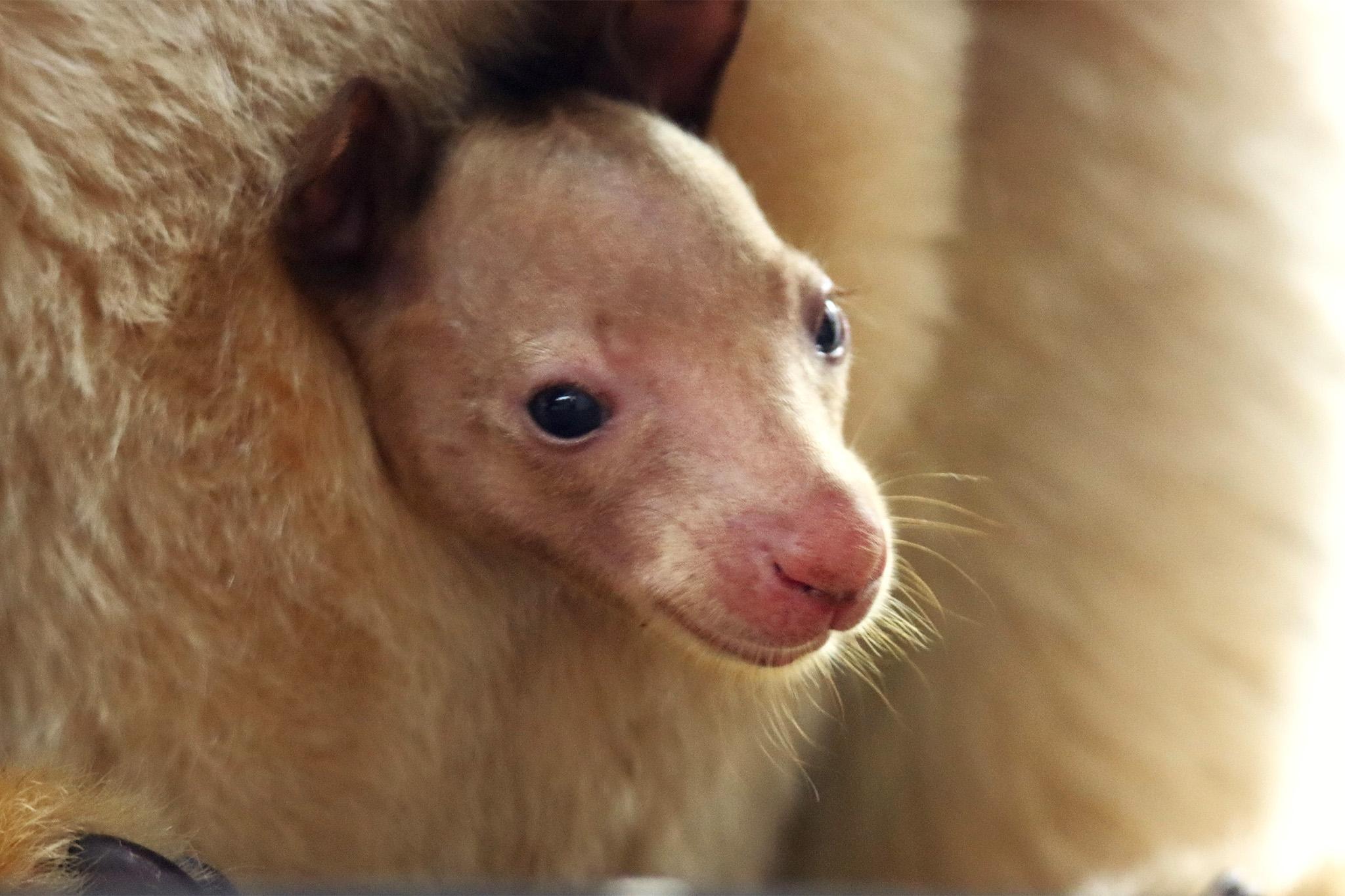It's 8:30 Friday morning at Carson Elementary in Hilltop, the last day of school before kiddos are off to three weeks of spring break. It's vacation as much as it is an effort to keep them at a healthy "social distance" from one another.
Jennifer Piel is working with her group of "Discovery Link" students, who sit crosslegged on a rug in the cafeteria. They're kids with working parents who need a little supervision before and after school.
Piel is sweetly singing and projecting her voice over the group. She mimes hand washing as she says: "We do this for 20 seconds, OK?"
She's talking about something serious: the COVID-19 outbreak that has the adult world spinning in a whirlwind of closures, cancellations and quarantines. But in here, these matters are addressed the way Piel does it. Authority and importance are expressed through high-pitched, warm and knowing voices.
"I want you to know that the reason that we're stopping school for a few weeks is because we are utilizing one of our Carson character traits, and that character trait is responsibility," she tells the group. "Even though things might feel a little weird and strange and scary right now, your parents and your grandparents and your teachers and I and everyone else who loves you are gonna work together to make sure we get through this. And when we come back together, after our break, we are going to be a stronger, even more awesome community than we were when we left."
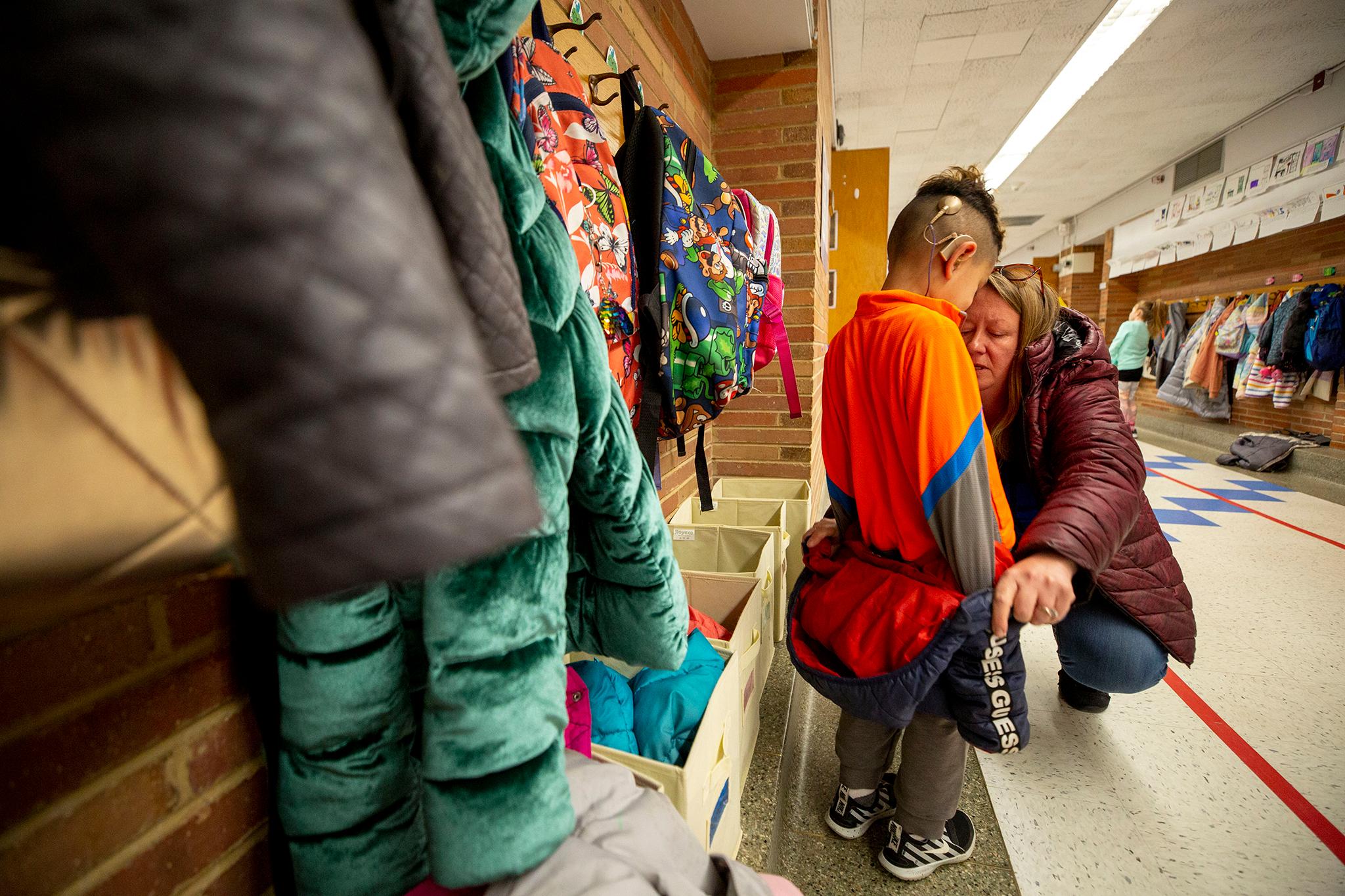
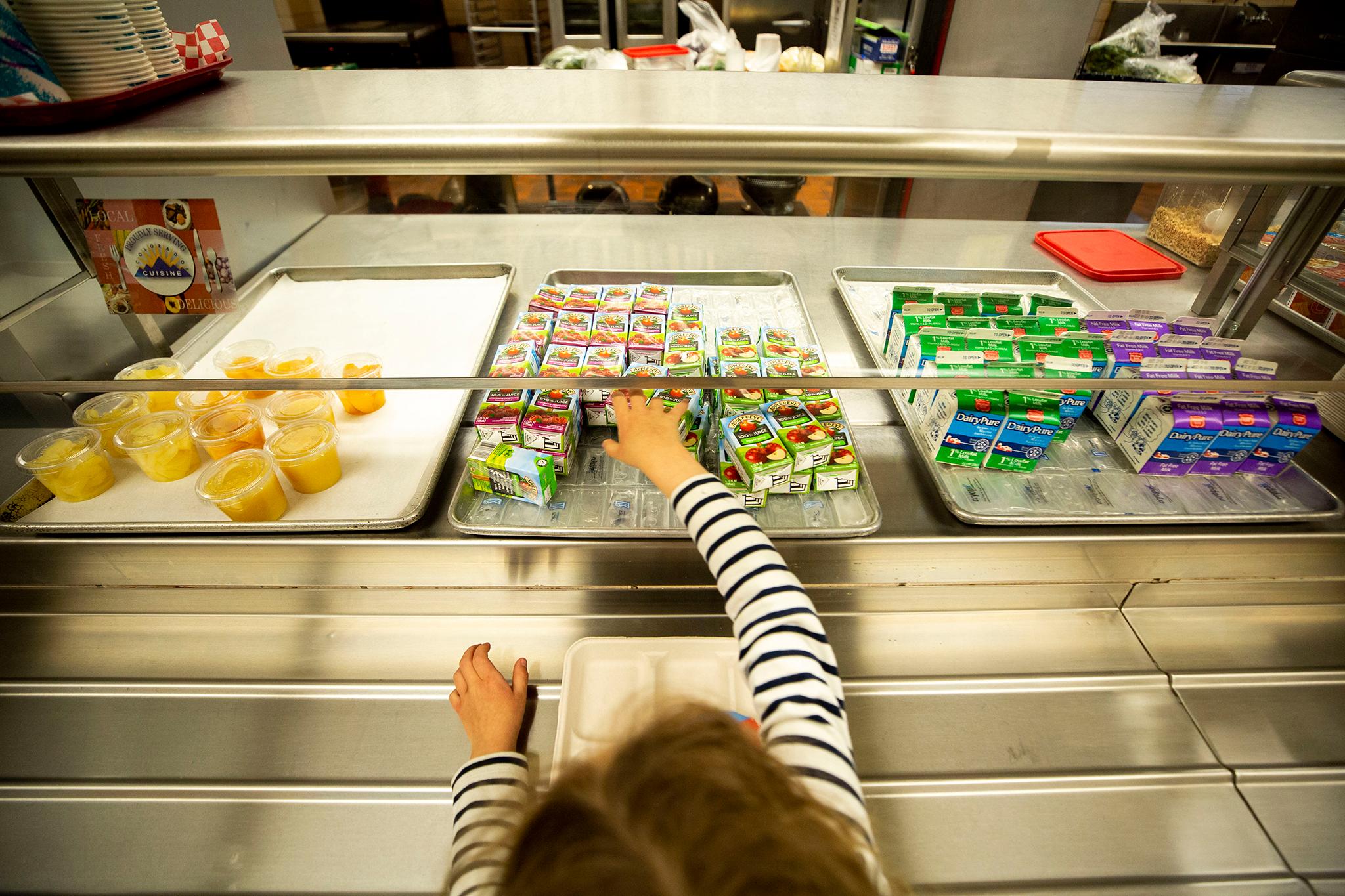
There are 466 kids enrolled at Carson, but about a quarter of them didn't show up today. Teachers, like P.E. instructor Paul Stehle, say they'll likely consolidate classes to keep things from feeling too odd.
In the main hallway, Principal Anne Larkin sits behind a table with a sign reading: "COVID-19 Q&A with the principals." She says most of the questions she's gotten this morning were from parents wondering about logistics or the lunch program DPS is offering families during break. About 10 percent of her students rely on meals offered at school, so getting these facts will become very important next week once Carson is closed.
This is not the first time Larkin has faced something "new and unknown," she says. After the teacher strike and the bomb cyclone: "We've perfected our communications strategies, just because we've had experiences with once-in-a-lifetime things."
The trick, Larkin says, is perfecting that tone between sweet and serious. It's something she said they do all the time here anyway.
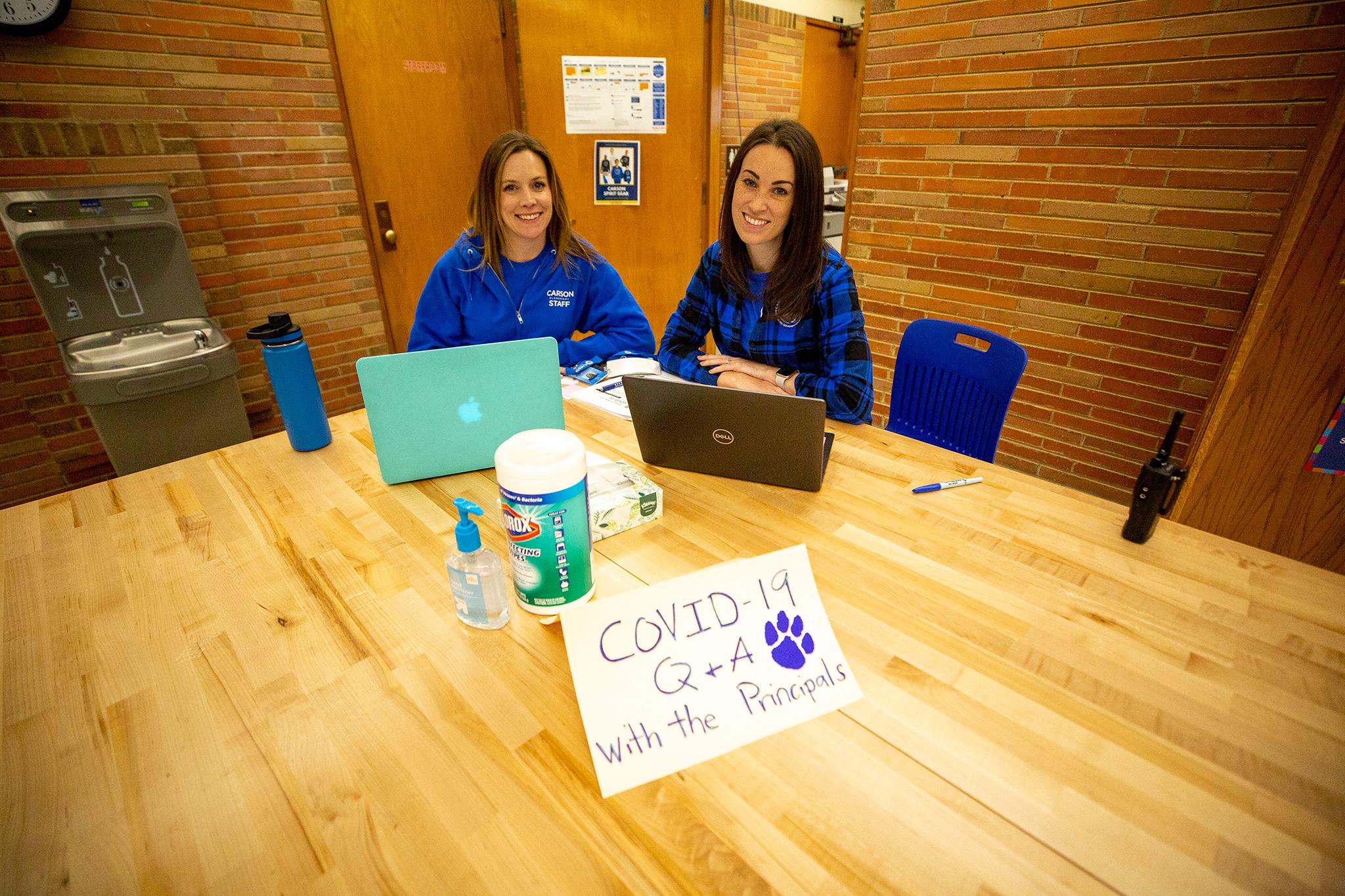
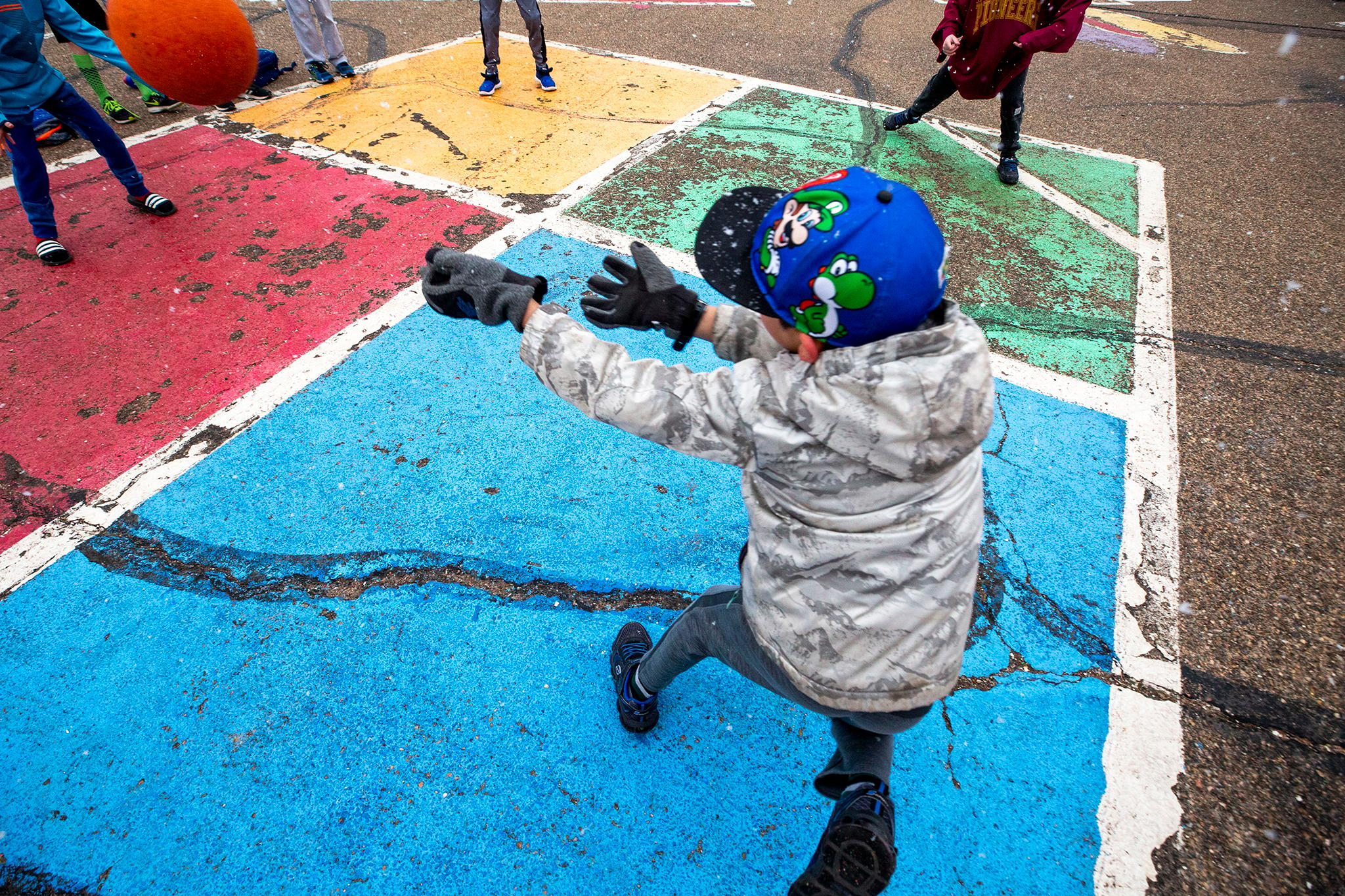
Kids stream in from foursquare games beneath newly falling snow and head into classrooms. Larkin speaks through the PA system to get the day started. She has a lot of birthdays to read today, all those that will be celebrated over break. Then, she leads them in the Pledge of Allegiance.
At the end of her speech, she wishes the students well on this vacation: "We will miss you dearly. We cannot wait to see you back here on April 7th."
Class has begun.
In one room, second-grade teacher Kari Notton asks her kids what they'll do over break. Kids shout: Pokémon and TV and building snowmen.
"Hopefully there's some reading in there," she says flatly.
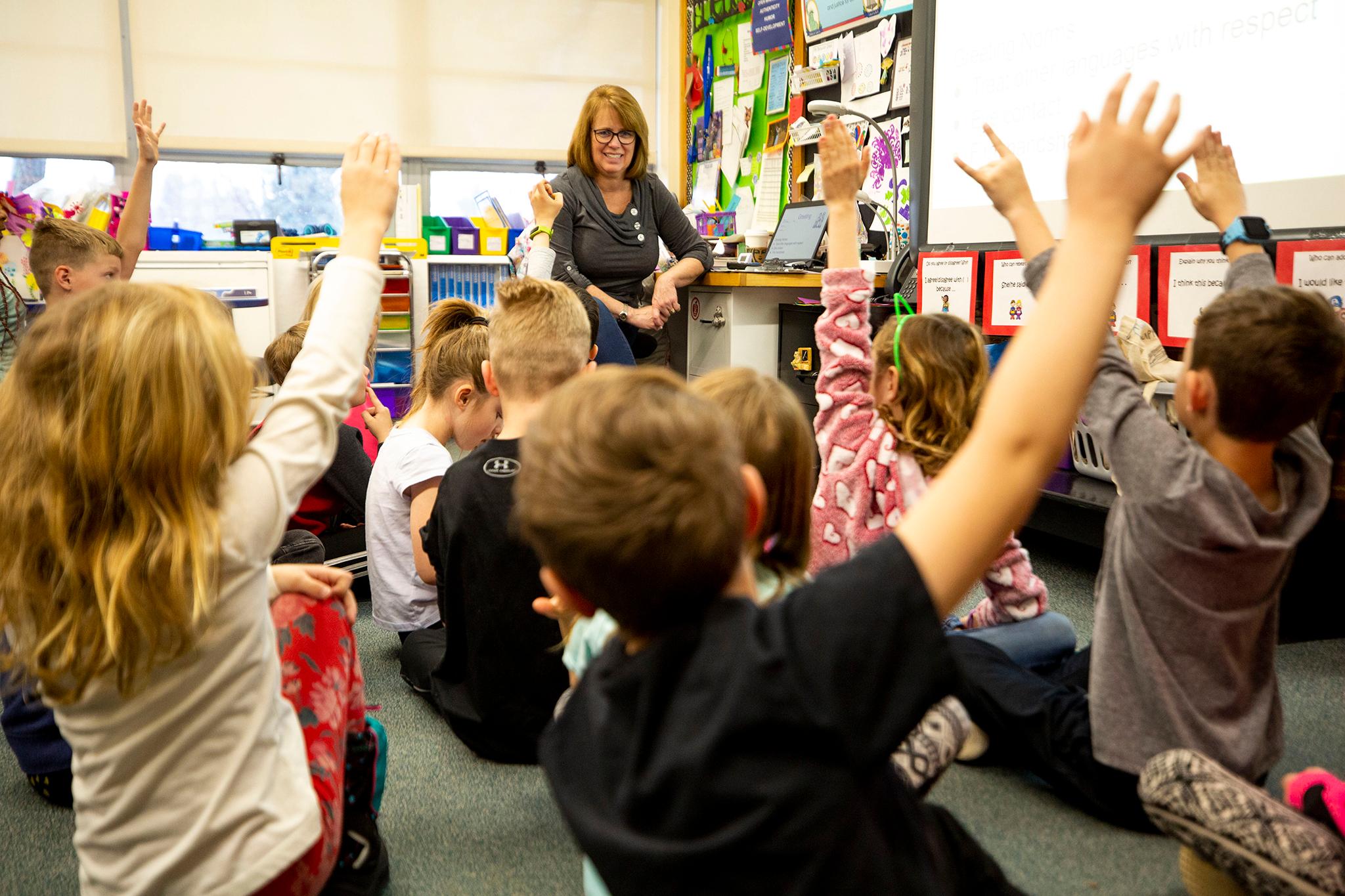
Next door, teacher Terri Ruffennach asks her second graders if they have any questions.
"My mom might not even leave the house," one kid says. It's not a question.
"Last night I just figured out that the U.S.A. is very protective of their people," another says with excitement. It's also not a question, but Ruffennach answers anyway.
"Yep, and that's why we're having the extra spring break," she says. She'll be sending them home with a packet of activities to help them stay busy.
Across the hall, preschool teacher Saralyn Voltz is bleaching toys and wiping down her room. It's something she'd normally do for these items that often end up in kids' mouths, but it feels extra important today.
In another room, art teacher Julie Weir is searching YouTube for how-to drawing videos she'll recommend to students before they head home.
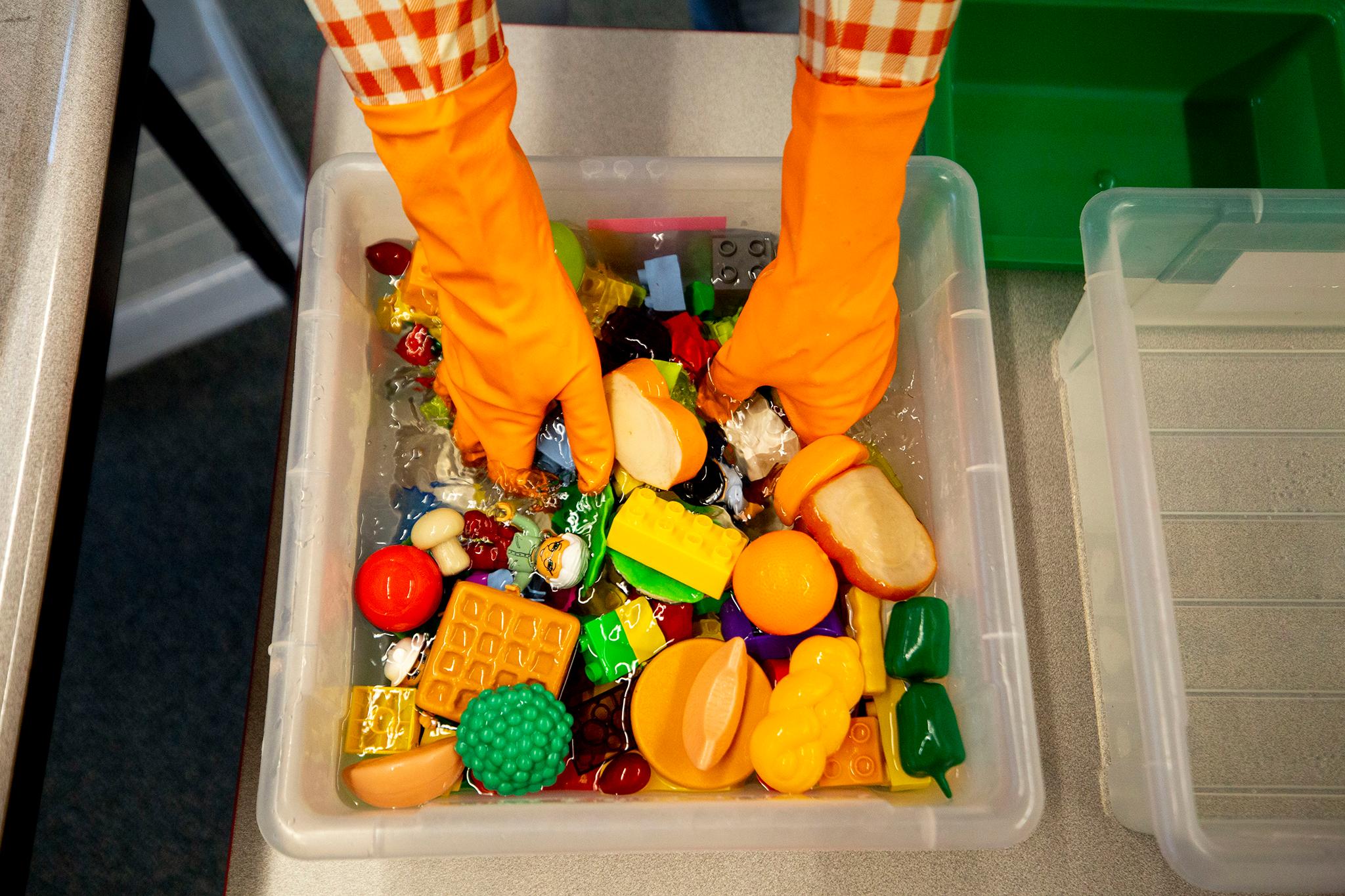
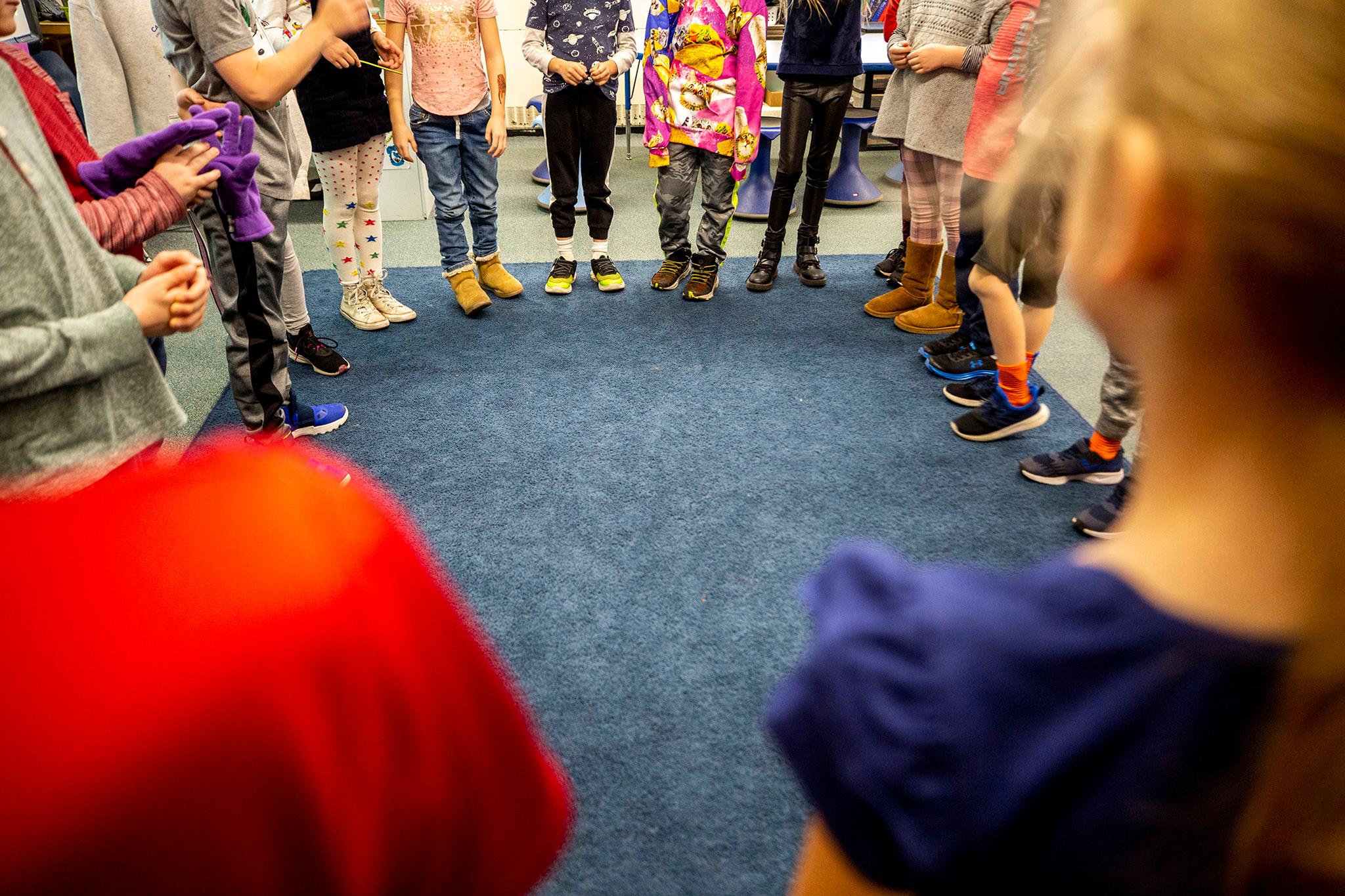
Nobody is sending required homework, but many teachers here want to make sure parents have some resources to keep their kids busy over the long three weeks. Others plan to help parents directly, like Kim Greiner, a paraprofessional who usually works one-on-one with a kid with "very special needs." She'll be at her student's house to lend a hand.
"I think her mom's going to go crazy if she doesn't have a little help for the next three weeks," she says. "I can't imagine suddenly having to figure out what to do with my kids."
Piel will be helping the working parents she serves, too. She's got a team of babysitters, ranging from teachers to East High students, who will be making house calls these next few weeks. It's an opportunity to provide "loving support" to as many families as possible she says, as she wraps up her class in the cafeteria.
"To be able to provide that special care in a circumstance like this," Piel said, "when community support is extra important - we really feel privileged to be able do that."

